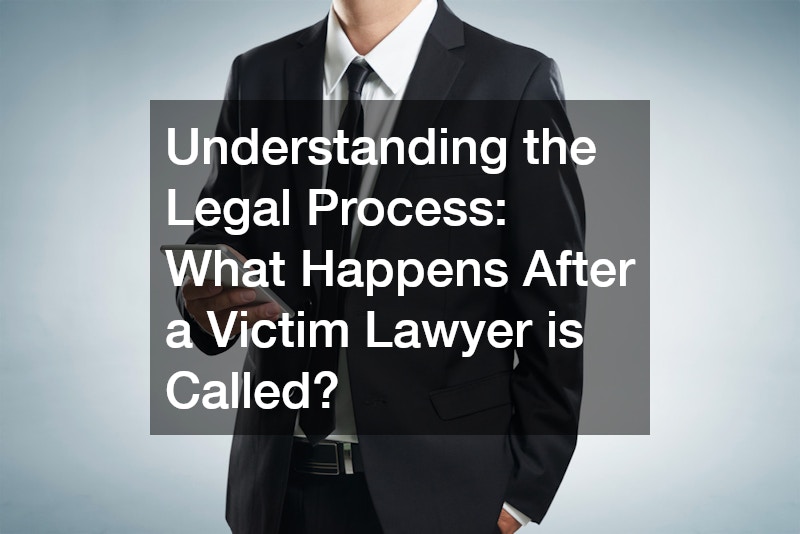
Court appearances can be quite stressful, whether it’s a family, groups of friends or an individual. Especially when you have other serious commitments and can’t afford to miss them. In such cases, you need a surety bond in court to ensure your presence without paying the full bail amount upfront. Surety bonds, also known as bail bonds, provide a practical solution for individuals who are unable to afford the entire bail amount on their own.
What is Bail, and How Does it Work?
Bail is the legal procedure through which a person who has been arrested or charged with a crime can be freed from jail pending trial. Its goal is to strike a compromise between the presumption of innocence and the requirement that the accused appear in court.
At a bail hearing following an arrest, the judge will decide whether or not to release the suspect on bond and will determine the bail amount. Considerations include the nature of the offense, the suspect’s propensity to escape, and their criminal record. Conditions, such as turning over passports and checking in with a probation officer on a regular basis, may be imposed if bail is granted.
The defendant or his allies must come up with the bail sum in cash, property, or through a surety bond in court issued by a bail bondsman to guarantee the defendant’s release from jail. After posting bond, the defendant is free to go about his or her life until trial. A person’s innocence or guilt cannot be determined just because they are freed on bail.
The defendant must appear at all court dates and follow the judge’s bail terms while out on bond. If they don’t, the judge can revoke bail and send them back to jail. If the bail requirements are satisfied, the bail money will be returned at the conclusion of the case.
There are scenarios whereby the defendant fails to appear in court as required or breaches the terms of their bail. In that case, the bail may be forfeited and the whole bail sum may be due from either the defendant or the bail bond business. It is crucial to check the local rules and regulations regarding bail processes, as they may differ from place to place.
What is Bail Bond?

A bail bond is a financial arrangement between a defendant and a bail bond agent or company to secure their temporary release from custody while awaiting trial. Without a surety bond in court, an accused person must wait in jail until their court date. If the defendant and the family can’t pay the whole amount of bail, the cheapest bail bond agency can help.
When they post a bail bond with the court, the bondsman promises that the defendant will appear for all scheduled court dates in exchange for a fee of around 10% of the entire bail amount. Offenders who post bail are released from jail but must still attend all scheduled court hearings.
The difference between bail and bail bond is that bail refers to the monetary amount set by the court that a defendant must pay in person to be released from jail while awaiting trial. On the other hand, a bail bond is a financial agreement made between the defendant, a bail bondsman, or a bail bond company. If the defendant or their family can’t afford to pay the full bail amount, they can seek a surety bond in court from a local bail bonds service.
The Bail Bond Process
Although the bail bond process tends to vary from one jurisdiction to another, it usually comprises 9 steps which include:
Step 1: Arrest

Essentially, the process of searching for a surety bond in court begins with the arrest of a person who is suspected of committing a crime. After the arrest, the defendant is taken into custody and transported to a local jail or detention center. At this point, it’s important to contact a local attorney specializing in criminal law. You will get professional guidance and assistance throughout the bail process.
Step 2: Booking
When a suspect arrives in jail, they will go through ‘booking,’ which involves the collection of data such as name, address, date of birth, fingerprints, pictures, and a criminal history check. The defendant’s property, including money and valuables, may be taken and held as evidence or retained until the defendant is released.
Step 3: Bail Hearing

A bail hearing is often held soon following an arrest and booking. A judge will decide whether or not bail should be set and, if so, how much it should be at the bail hearing. The court takes into account various aspects before offering a surety bond in court. Some include the seriousness of the offense, the defendant’s criminal record, community links, and the likelihood that the defendant would run away. Some jurisdictions may calculate The bail amount according to a specified bail schedule.
Step 4: Bail Payment
The defendant or their legal guardian must pay the entire bail sum to the court or get a bail bond from a qualified bail bondsman to post bail. The defendant can be released from jail by paying the whole bail sum or by posting a bail bond and paying a portion of the total to the bail bond service.
Complying with court restrictions is essential, and other payment choices may be available. A smooth procedure and an awareness of the unique requirements depending on the jurisdiction and case circumstances may be ensured by consultation with a criminal defense lawyer.
Step 5: Contacting a Bail Bond Specialist

If a surety bond in court is selected, the defendant or their attorney must contact a bail bond agent or company. Information on the defendant, including complete name, booking number, charges, and jail location, will be gathered. To ensure a smooth and reliable bail process, it’s imperative to look for reputable and licensed bail bond specialists.
Step 6: Bail Bond Application and Contract Signing
An application and a bail bond agreement are among the documents a bail agent creates. The defendant and the person liable for paying the bail must provide personal and financial details in the application. The bail bond contract spells out the defendant’s duties and the repercussions of noncompliance.
Step 7: Collateral and Payment
To secure a surety bond in court, the bail bond agency may ask for collateral. Cash, real estate properties, or other assets with a value at least as high as the bail amount can be used as collateral. Collateral ensures that the bail bond business won’t lose any money if the defendant doesn’t show up to court.
Bail bond services are typically 10% of the entire bail cost and must be paid before release. Cash, credit cards, and other ways of mutual agreement are some of the many acceptable forms of payment. To facilitate payment, some bail bond companies provide financing or installment options.
Step 8: Bail Bond Posting and Defendant’s Release
The bail bond will be posted at the jail or court once all paperwork has been completed, payment has been paid, and the bail bond agency has collected collateral. The defendant can be freed from jail when the bail bond is posted. However, the release time may vary based on the specifics of the jail’s policies and workload. Once a defendant has been released, they are free until their next court date.
The Obligations, Court Appearances, and Case Resolution in the Bail Bond Process
A defendant who posts bail and receives a surety bond in court is required by law or the terms of their bail bond to remain in compliance with a number of restrictions. Typical terms include attending all scheduled court dates, avoiding illegal activities, not contacting witnesses or victims, and not leaving the country without permission. If these conditions are not met, the court may revoke bail and issue an arrest warrant.
Defendants who post bond have a legal obligation to appear at all of their scheduled court dates. Failure to do so may result in the loss of the bail payment and further legal action. Defendants rely heavily on their criminal defense lawyers to explain the legal process, defend their rights, and mount a defense.
Until the case is over, the bail bond will stay in force. The defendant’s bail bond will be released once all court responsibilities have been met and the case has been resolved. The bail bond agency receives the collateral and pays any outstanding fees. However, the defendant’s bail bond might be lost if they don’t stick to the terms of their release. The court can then order the bail bond company or the individual who posted bail to pay the full bail sum, which might result in the forfeiture of collateral and hiring a bounty hunter to track down and catch the offender.
What are the Different Types of Bail Bonds?
Multiple varieties of bail bonds exist, each with its own set of rules and procedures. Cash bail, surety bonds, property bonds, and personal recognizance are the most popular alternatives to incarceration.
When bail is set at a cash sum, the defendant or a representative must pay the whole amount to the court before release. The money is often returned if the defendant satisfies all court conditions. The defendant typically pays a fee equal to 10% of the total bail amount when obtaining a surety bond through a bail bond company.
When the bail sum is too high to be paid in whole, defendants may post property bonds to secure their release. A lien or foreclosure on the property might result from failing to appear in court. The defendant is released on their own recognizance if they are unable to post bail or other security. Instead, they sign a promise to appear in court at all times, which might result in an arrest warrant if they don’t.
Immigration bail bonds are used for non-citizens detained for immigration-related concerns, whereas federal bail bonds are used for federal offenses. In certain areas, defendants can be released from jail before trial under specified circumstances and without posting bail under a pretrial release program. Since the availability and criteria of these bail bonds might vary by area, it’s essential to speak with a lawyer or a bail bondsman to learn about your unique choices.
Can I Leave My Country On Bail Bond?
The court’s requirements and the terms of your bail agreement will determine whether you can travel outside the nation while out on bail. Restrictions on travel, especially overseas travel, are a common condition of a surety bond in court.
Those who post bail must often give up their passports or get special authorization from the court and the bail bondsman before leaving the country. This guarantees that the accused appears in court as required and is otherwise available during the trial.
You should talk to your criminal law lawyer and read the bail agreement thoroughly to find out whether there are any limits on your ability to travel. Release can be revoked and you might face legal trouble if you leave the country without permission in violation of the terms of your release.
Who Is a Bounty Hunter?
A bounty hunter is an individual hired or authorized to track down and apprehend fugitives on behalf of bail bondsmen or governmental agencies. With specialized training in fugitive recovery, surveillance, and investigation, they locate individuals who have skipped bail and bring them back into custody.
Within the legal framework, bounty hunters employ various methods to track fugitives, such as surveillance, database searches, and collaboration with law enforcement. Once apprehended, they may deliver the fugitives to the appropriate authorities or the bail bondsmen.
When facing court dates and even jail, it is critical to grasp the bail process and bail bonds fully. A surety bond in court, commonly known as a bail bond, is a viable option for defendants who lack the financial resources to post bail in full. Defendants can use this to get out of jail before their court date.
The bail process usually begins when someone is arrested. Get started by calling a reliable bail bond agent or firm, then filling out an application and signing a contract. The bond might be secured with a variety of payment methods and property. It is crucial to keep all court dates and requirements set by the court. Revocation of bail and possible legal ramifications await those who fail to comply.



